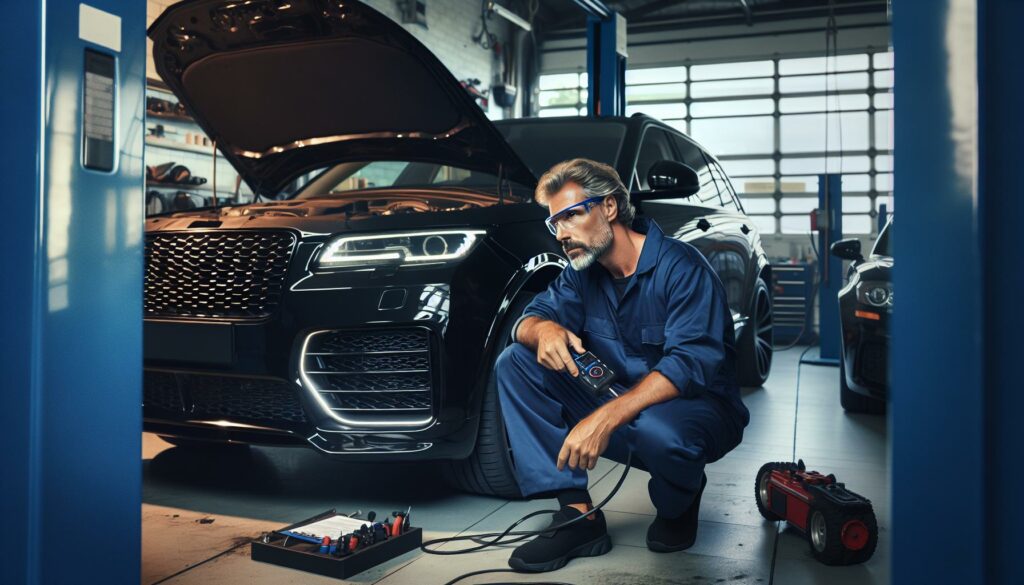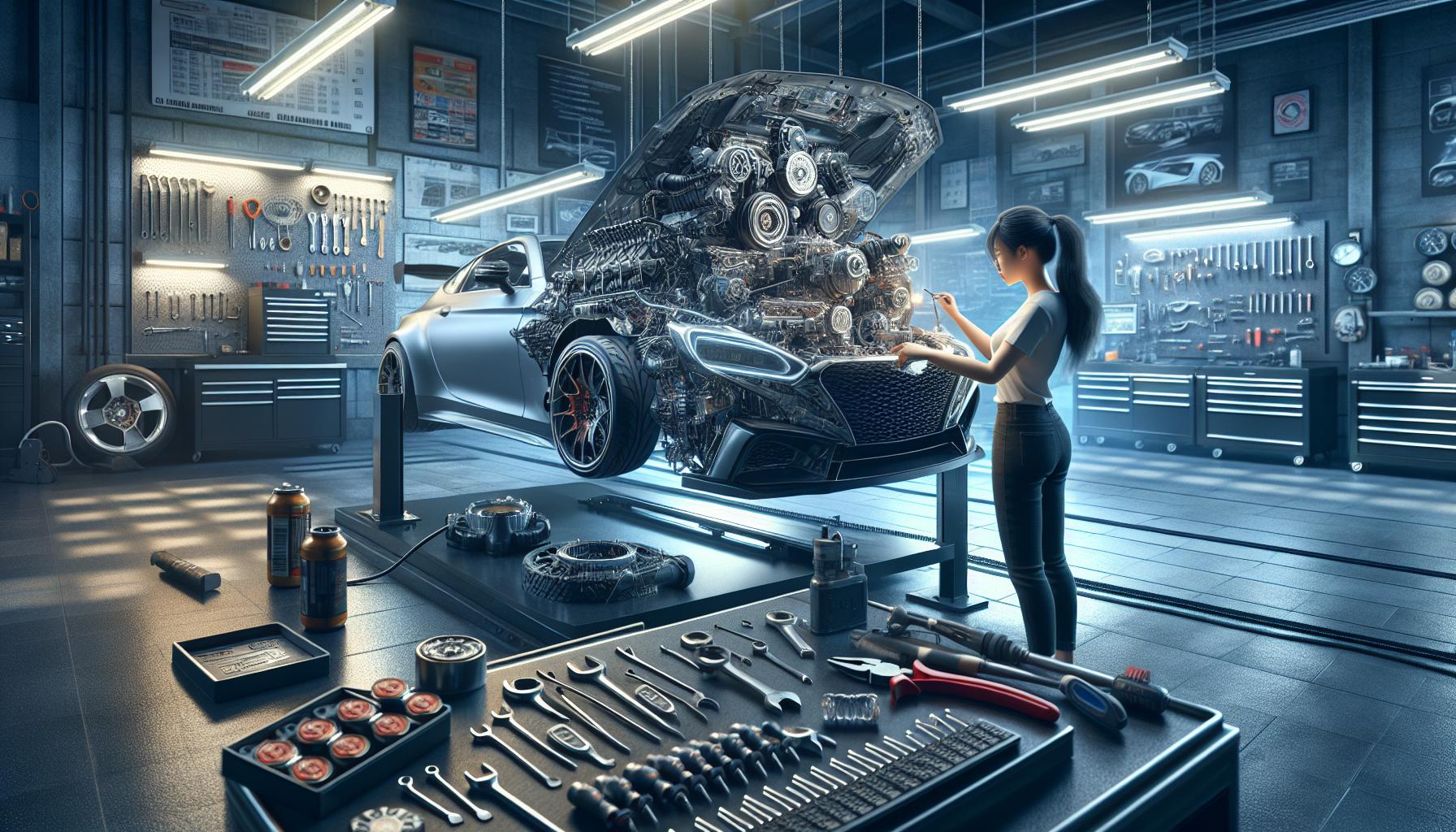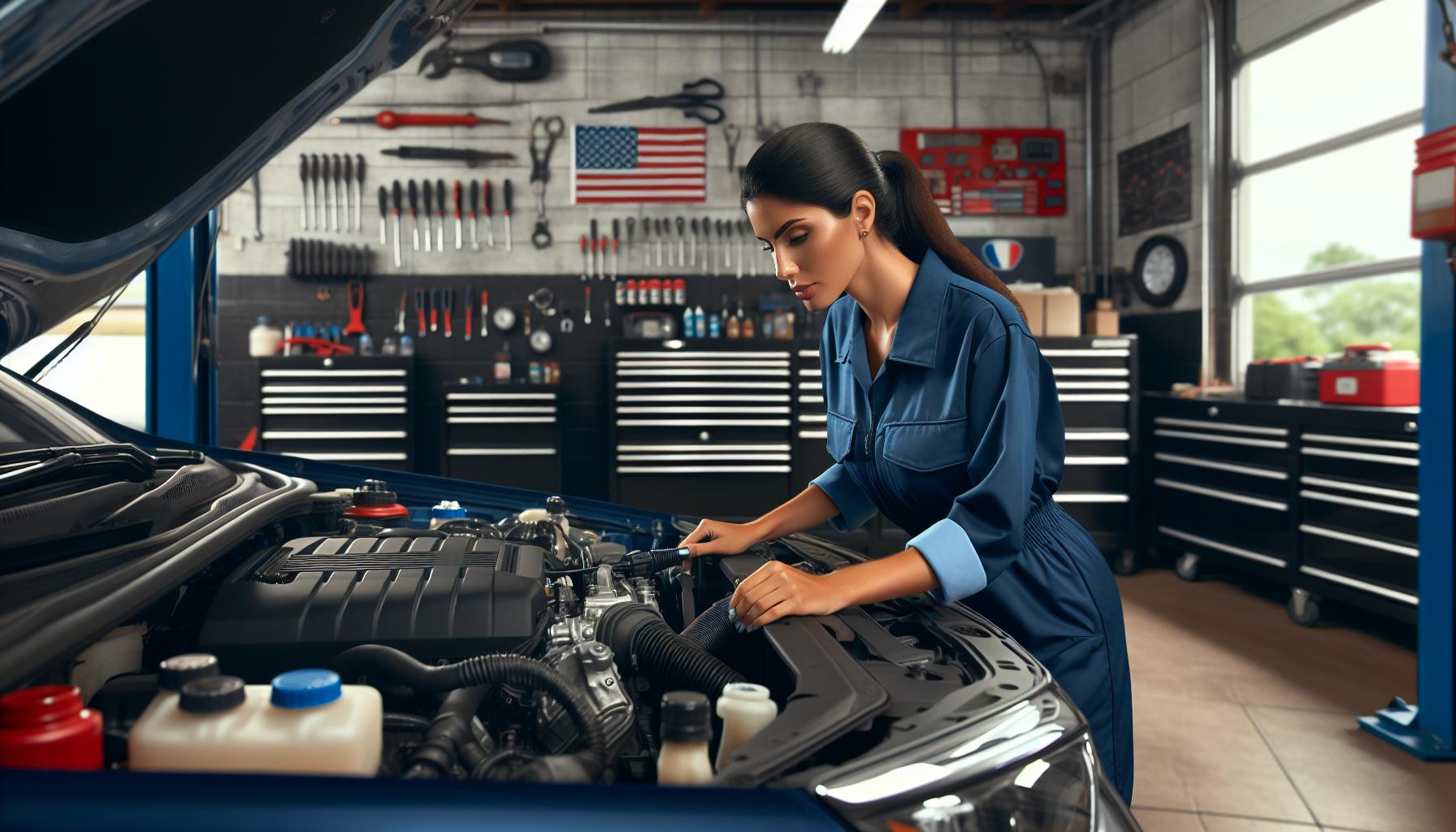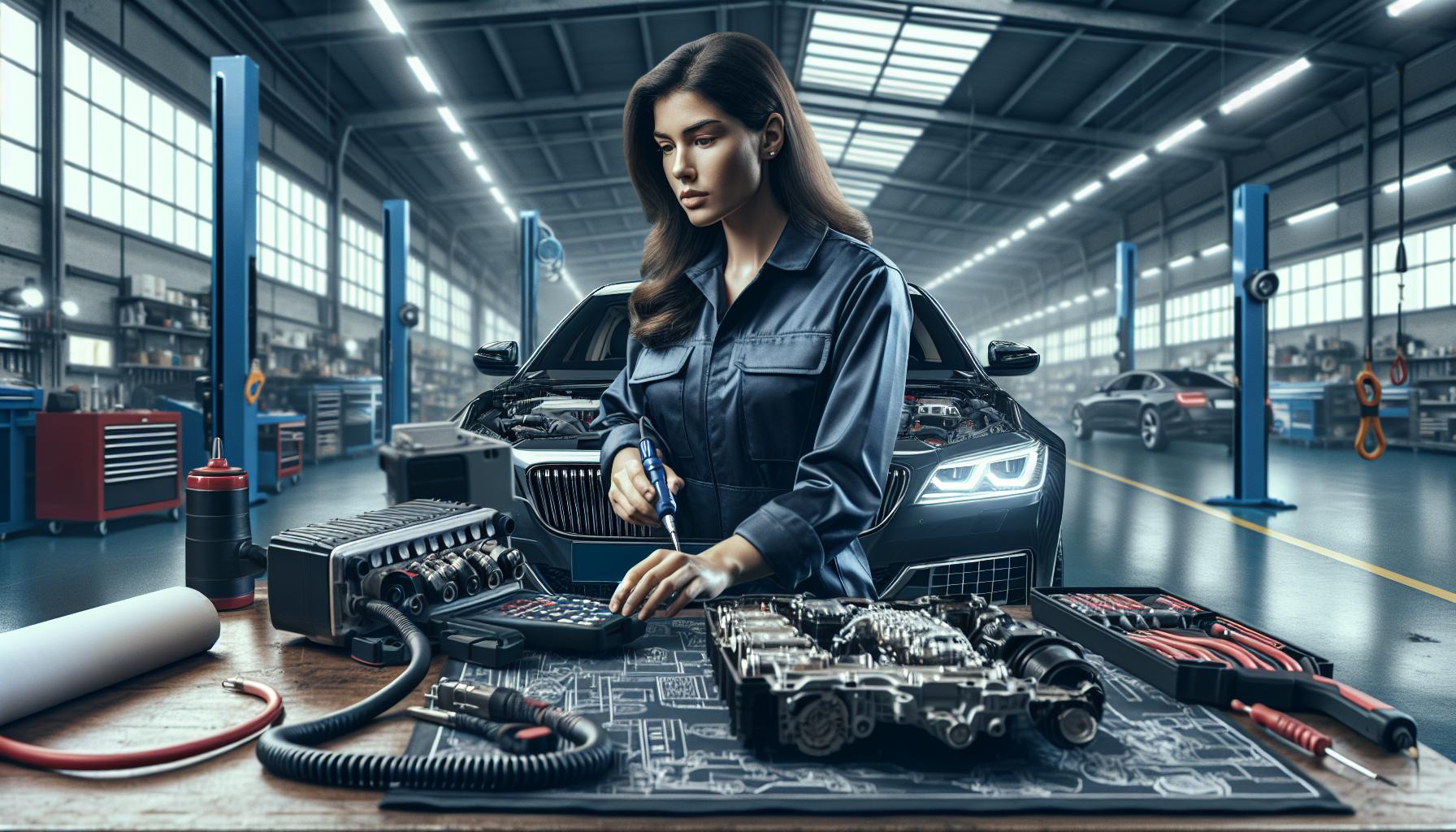
Finding a reliable mechanic for your foreign car can feel like searching for a needle in a haystack. I’ve helped countless car owners navigate this challenge and understand the importance of choosing a specialist who knows the ins and outs of your specific make and model.
As someone who’s worked closely with various auto repair shops, I’ve learned that not all mechanics are equipped to handle foreign vehicles. European and Asian cars often require specialized diagnostic tools, specific parts, and extensive knowledge of their unique engineering. I’ll share my expertise to help you find a qualified foreign car mechanic in your area who’ll provide the expert care your vehicle deserves.
Key Takeaways
- Foreign cars require specialized mechanics with specific training, tools, and expertise to properly diagnose and repair their unique engineering features
- Look for mechanics with relevant brand certifications (like BMW STEP or Mercedes-Benz Star) and check online reviews on platforms like Google Reviews, Yelp, and RepairPal
- Expect to pay higher labor rates ($85-150/hour) for foreign car repairs compared to domestic vehicles ($50-95/hour), due to specialized expertise and equipment
- Choose between OEM parts (exact fit, manufacturer warranty) and aftermarket parts (40-55% savings) based on the repair type and vehicle component
- Independent shops typically offer lower rates and more personalized service than dealerships, but dealerships maintain advantages for warranty work and factory software updates
Foreign Car Mechanics Near Me
Foreign car mechanics possess unique diagnostic equipment tools designed explicitly for imported vehicles like BMW Mercedes-Benz Audi Lexus. Their specialized training enables accurate repairs maintenance procedures that meet manufacturer specifications.
Common Foreign Car Service Requirements
Foreign vehicles demand specific maintenance protocols unique to their engineering design features:
- Direct shift gearbox maintenance for Volkswagen Audi transmissions
- Variable valve timing adjustments on Honda Toyota engines
- Electronic system diagnostics for BMW Mercedes computer modules
- High-pressure fuel injection servicing in European diesel engines
- Carbon cleaning procedures for turbocharged engines
- Specialized oil specifications meeting European standards
- BMW certification in advanced driver assistance systems
- Mercedes-Benz training for air suspension components
- Volvo hybrid powertrain diagnostic capabilities
- Toyota manufacturer-specific scan tool operations
- Subaru boxer engine timing belt procedures
- Honda transmission control module programming
| Vehicle Origin | Required Expertise Areas | Specialized Tools |
|---|---|---|
| European | Engine Management Systems | VCDS Scanner |
| Japanese | Hybrid Technologies | Techstream |
| German | Transmission Control | STAR Diagnostic |
| Swedish | Safety Systems | VIDA System |
| Korean | Electric Components | GDS Scanner |
Finding Qualified Foreign Car Mechanics

I’ve identified several effective methods to locate skilled mechanics who specialize in foreign vehicles through both digital platforms and professional certifications.
Online Reviews and Ratings
Local review platforms showcase customer experiences with foreign car mechanics in specific areas. Google Reviews displays ratings from 1-5 stars with detailed feedback about repair quality service costs. Yelp filters mechanics by foreign car specialties including BMW Mercedes Audi. RepairPal certifies shops based on 26 quality metrics including technical training fair pricing customer satisfaction.
- Regular technical updates about model-specific repairs
- Access to proprietary diagnostic equipment
- Factory-direct parts procurement authorization
- Advanced training on new vehicle technologies
- Documentation of completed manufacturer courses
| Certification Program | Required Training Hours | Renewal Period |
|---|---|---|
| Mercedes-Benz Star | 80 | Annual |
| BMW STEP | 200 | 2 Years |
| Audi Service Tech | 896 | 3 Years |
| Volvo VISTA | 120 | Annual |
Questions to Ask Before Choosing a Mechanic

Selecting a qualified foreign car mechanic requires asking specific questions to evaluate their expertise and service quality. These targeted inquiries help determine if the mechanic meets the specialized needs of your imported vehicle.
Experience With Your Vehicle Make
A mechanic’s specific experience with your vehicle brand reveals their expertise level in handling similar repairs. I recommend asking:
- How many years have you worked on [your car brand]?
- What percentage of your repairs involve [your car brand]?
- Do you maintain factory-level diagnostic equipment for [your car brand]?
- What specialized certifications do you hold for [your car brand]?
- How often do you receive updated training for new models?
- Do you use OEM or aftermarket parts for repairs?
- What warranty duration comes with parts and labor?
- Are warranties transferable if I sell my vehicle?
- Do you honor manufacturer warranties for recent models?
- Can I provide my own parts for repairs?
| Warranty Type | Typical Coverage Period | What’s Included |
|---|---|---|
| Parts | 12-24 months | Replacement components |
| Labor | 90-365 days | Workmanship guarantee |
| OEM Parts | Up to 4 years | Factory-authorized parts |
| Aftermarket | 6-12 months | Third-party components |
Cost Considerations for Foreign Car Repairs

Foreign car repairs typically involve higher costs due to specialized labor expertise, diagnostic equipment requirements and imported parts. Here’s a detailed breakdown of the primary cost factors.
Labor Rates and Diagnostic Fees
Foreign car mechanics charge $85-150 per hour for labor compared to $50-95 for domestic vehicles. Diagnostic fees range from $150-300 for foreign cars, covering sophisticated computer testing equipment specific to brands like BMW, Mercedes-Benz and Audi. These rates reflect:
- Base Labor Rates
- European specialists: $120-150/hour
- Asian imports: $85-120/hour
- Luxury brands: $140-200/hour
- Diagnostic Categories
- Basic electronic scan: $75-125
- Advanced diagnostics: $150-250
- Complex system testing: $250-500
OEM vs Aftermarket Parts
The choice between Original Equipment Manufacturer (OEM) and aftermarket parts significantly impacts repair costs. Here’s a comparative cost analysis:
| Part Type | OEM Cost | Aftermarket Cost | Average Savings |
|---|---|---|---|
| Oil Filter | $25-35 | $12-20 | 45% |
| Brake Pads | $150-300 | $75-150 | 50% |
| Air Filter | $40-80 | $20-40 | 50% |
| Sensors | $200-500 | $100-250 | 55% |
- OEM Benefits
- Perfect fitment guarantee
- Original manufacturer warranty
- Identical material quality
- Aftermarket Advantages
- Lower purchase costs
- Wider availability
- Multiple quality tiers
I recommend using OEM parts for critical components like engine management systems transmission parts while considering quality aftermarket options for routine maintenance items like filters brakes.
Comparing Local Foreign Car Service Centers
Local foreign car service centers offer distinct advantages based on their expertise, pricing structure and service quality. A methodical comparison helps identify the best service provider for specific foreign vehicle needs.
Independent Shops vs Dealerships
Independent foreign car specialists often provide personalized service at lower rates than dealerships. Here’s a detailed comparison of key factors:
| Service Aspect | Independent Shops | Dealerships |
|---|---|---|
| Labor Rate | $85-$150/hour | $150-$250/hour |
| Parts Cost | 20-40% lower | Premium pricing |
| Wait Time | 1-3 days | 3-7 days |
| Warranty | 12-24 months | Factory warranty only |
| Personal Attention | High | Moderate |
Key differences include:
- Diagnostic Equipment: Independent shops invest in multi-brand diagnostic tools while dealerships use brand-specific equipment
- Parts Selection: Independent shops offer OEM or quality aftermarket options versus dealership-exclusive OEM parts
- Technical Training: Independent technicians often hold multiple brand certifications compared to single-brand dealer training
- Service Flexibility: Independent shops accommodate modifications and aftermarket upgrades while dealers strictly follow factory guidelines
- Location Options: Independent shops provide multiple location choices versus limited dealer networks
Independent shops excel in:
- Competitive pricing
- Flexible scheduling
- Direct communication
- Multi-brand expertise
- Custom solutions
Dealerships maintain advantages in:
- Factory-trained technicians
- Original parts access
- New vehicle warranty work
- Software updates
- Recall service handling
The choice between independent shops and dealerships depends on warranty status vehicle age specific repair needs.
Careful Research
Finding the right foreign car mechanic requires careful research and consideration. I’ve found that the extra effort in locating a specialist who understands your specific vehicle make and model pays off through quality repairs and long-term vehicle reliability.
Whether you choose an independent shop or dealership a certified mechanic with proper training and tools will protect your investment. I recommend using online resources reading reviews and asking the right questions before making your decision.
Remember that while foreign car repairs might cost more the expertise and specialized service you’ll receive are worth the investment. The right mechanic will keep your vehicle running smoothly and help maintain its value for years to come.








